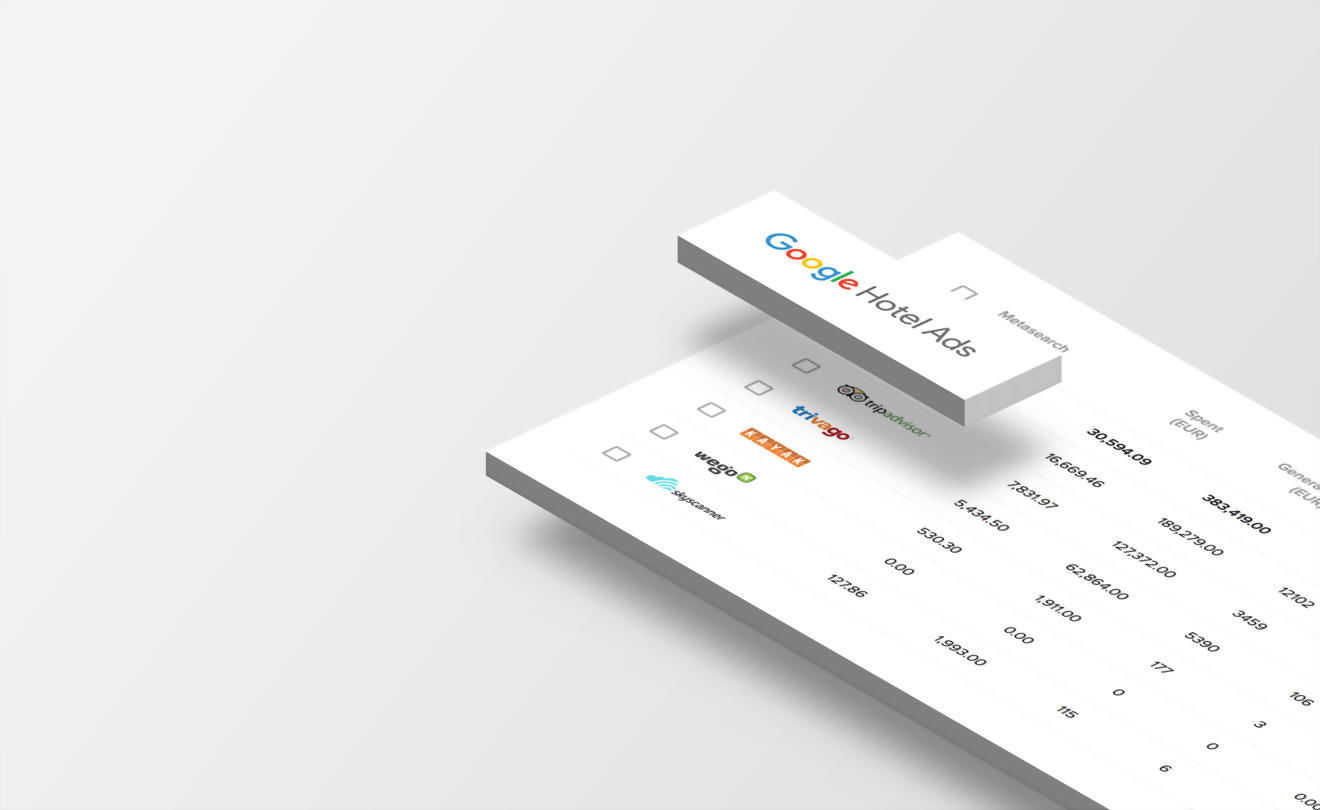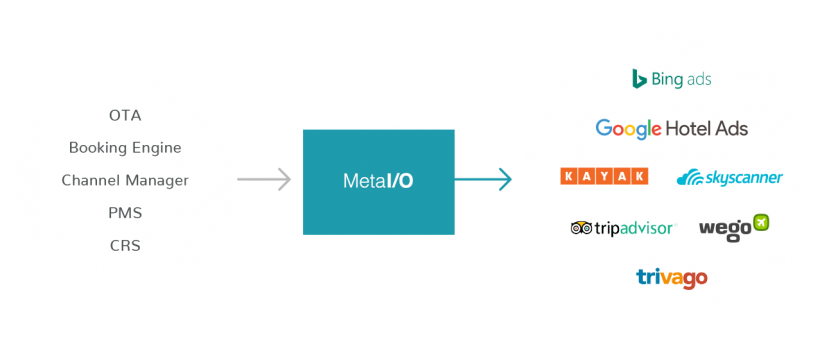
What are Meta Searches? Effective Metasearch Strategy!
Meta Searchers find their information using multiple search engines comparing hotels and hotel room rates, as opposed to Online Tourism Agencies (OTAs) like Booking or Expedia.
In the hotel industry, this refers to price comparison sites. Their supposed action is therefore to offer a summary of searches sorted according to the search criteria requested.
Definition of Meta Search
Generally remunerated at Cost Per Click (CPC), Meta Search are flexible and effective marketing tools allowing hoteliers to obtain reservations directly on their site, in order to avoid the costs linked to the commissions levied by OTAs.
It is important to know that when a reservation is made by Booking.com, Expedia or other, it costs on average 20% at the hotel. This fairly high commission therefore motivates hoteliers to avoid it in order to increase their margins.
Apart from Google Hotel Ads which adopts either a Cost Per Acquisition (CPA), Commission, or CPC system, the vast majority of other Metasearch are CPC based.
How does Metasearch work?
Aside from Google Hotel Ads which is either CPA, Commission, or CPC based, all the others are overwhelmingly Cost Per Click. The hotelier only pays if the link to his booking engine is clicked by the Internet user. He must therefore adhere to their subscription and payment method programs.
Be aware all the same for information that an independent hotelier alone cannot technically connect to it. He must either use his Channel Manager (D-Edge, Availpro, SiteMinder, etc.), or go through operators specializing in Meta Engines such as WIHP, who have installed the necessary data exchange connectors such as room availability, prices with and without taxes, and other variable information.
What are Meta Searches for your hotel?
Meta Searches are, like OTAs, an additional distribution channel and a means of recruiting and acquiring new customers.
The Meta Engines complete the offer and position themselves as an additional showcase, but also as sources of traffic, even if the market share at the world level of the two main OTAs, Booking and Expedia, is around 70%.
Namely that some of them are closely affiliated with the OTAs themselves. For example, Trivago is part of the Expedia group and Kayak of the Priceline group which also owns Booking.

Manage and drive Meta Search to make it a profitable acquisition channel?
Have an optimized booking engine
Even if it goes without saying, it is good to remember it. First of all, and before thinking about acquiring direct bookings on your hotel website, make sure you have a booking engine that is well suited to bookings on mobiles or tablets (Responsive), whether it is simple to use and that your users do not encounter any technical difficulties.
If metasearch can almost close the sale, you must not forget that your booking engine is the last page that the Internet user sees before deciding. It is therefore, of course, necessary or even essential that the user experience be optimal.
Connect to metasearch
Insofar as you do not yet use with Meta Search, you should know that to create the connection between your establishment and the price comparison sites, you need to use the services of an integration partner specialized in the field such as WIHP and its Meta IO solution.
CPC and viewability rate, a combo to watch
As mentioned earlier, the majority of Meta Search uses a cost-per-click compensation system. This means that each time a user clicks on your rate offer to arrive on your hotel website, this has a cost for your hotel. Also note that you can change this CPC at any time.
The impression rate, which could be translated as visibility rate, refers to the number of times your offer is visible when a user searches for the name of your hotel.
If we take the example of Google Hotel Ads, by default it only shows four price offers when searching for the name of a hotel. In other words, the higher the chosen CPC, the higher you will appear in the results. Important metric at Google, but that we can also find at all other Meta Search.
Meta Search and CPA
Currently, only Google Hotel Ads and Trivago offer cost per acquisition. With the CPA, you pay money only in the event of a reservation being made, as with an OTA.
The advantage is that the prices are flexible and, on average, it is less than 10% in fees, compared to 20% for OTAs. Less interesting than a highly optimized CPC strategy, but simpler and safer.
CPA is generally used in two situations: the first is that of the hotel which does not necessarily have the budget to use an agency that manages its Meta Search campaigns, and the second, that where, after a strategy launch CPC, ROAS (return on investment) is not enough. When a CPC strategy becomes more expensive than a CPA, we turn to CPA for guaranteed returns on investment.
Don’t Get Jealous: Open All Channels
It is important to get started on all Meta Searches, starting with the most important ones, which are Google Hotel Ads, TripAdvisor and Trivago. But you don’t just have to limit yourself to them.
Indeed, neglecting Skyscanner, Kayak or Bing Hotel Ads would be a mistake. These metasearches make it possible to acquire another clientele which it would be a shame to deprive yourself of.
Metasearch: an essential acquisition channel for hoteliers
Hoteliers can get direct bookings with minimum commissions using Meta Search and hotel marketing. Meta Searches are now a simple approach to vary your distribution channels and thus increase your volume of reservations and your turnover.
If you want to set up metasearches, do not hesitate to contact our teams at WIHP.